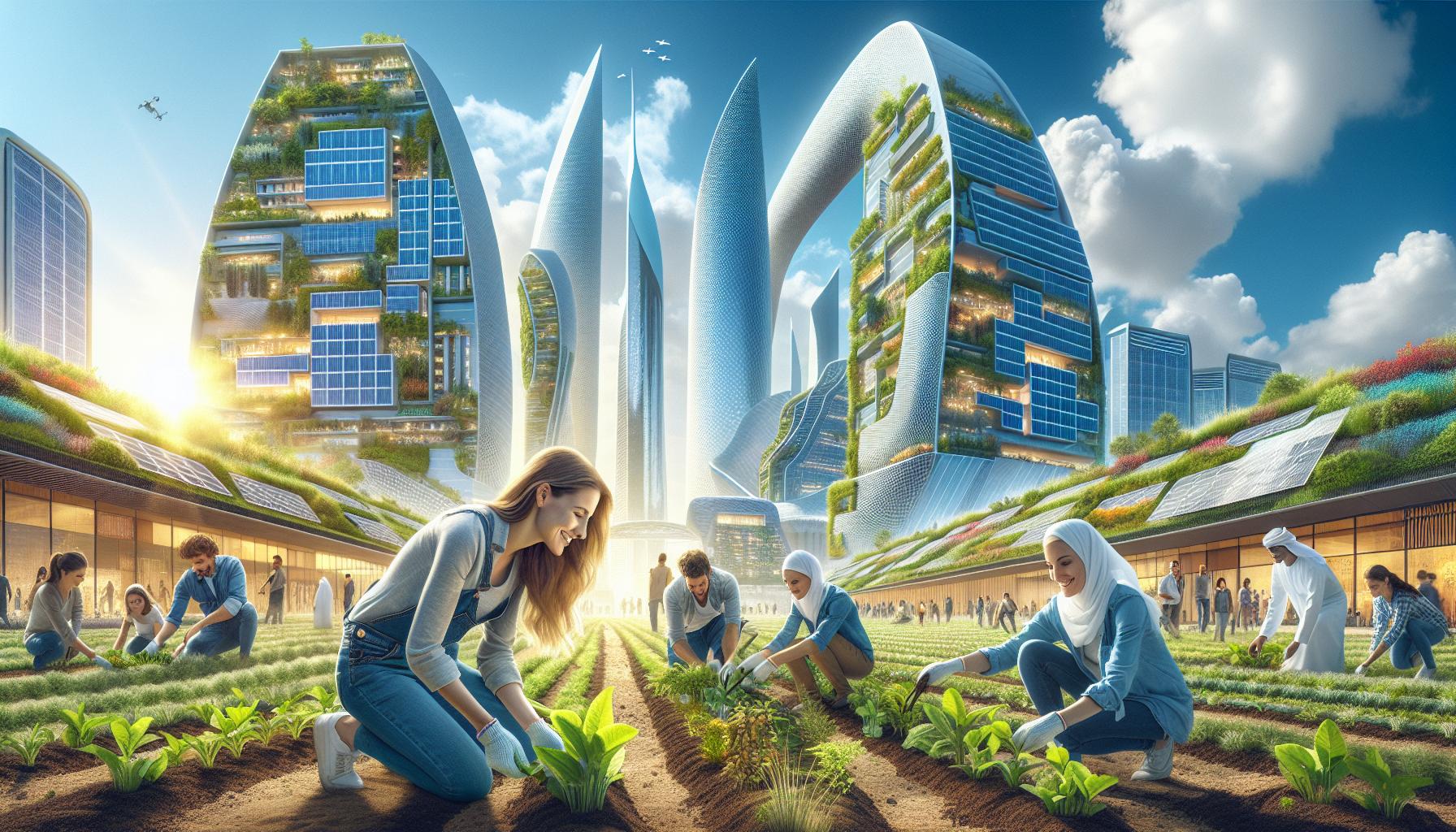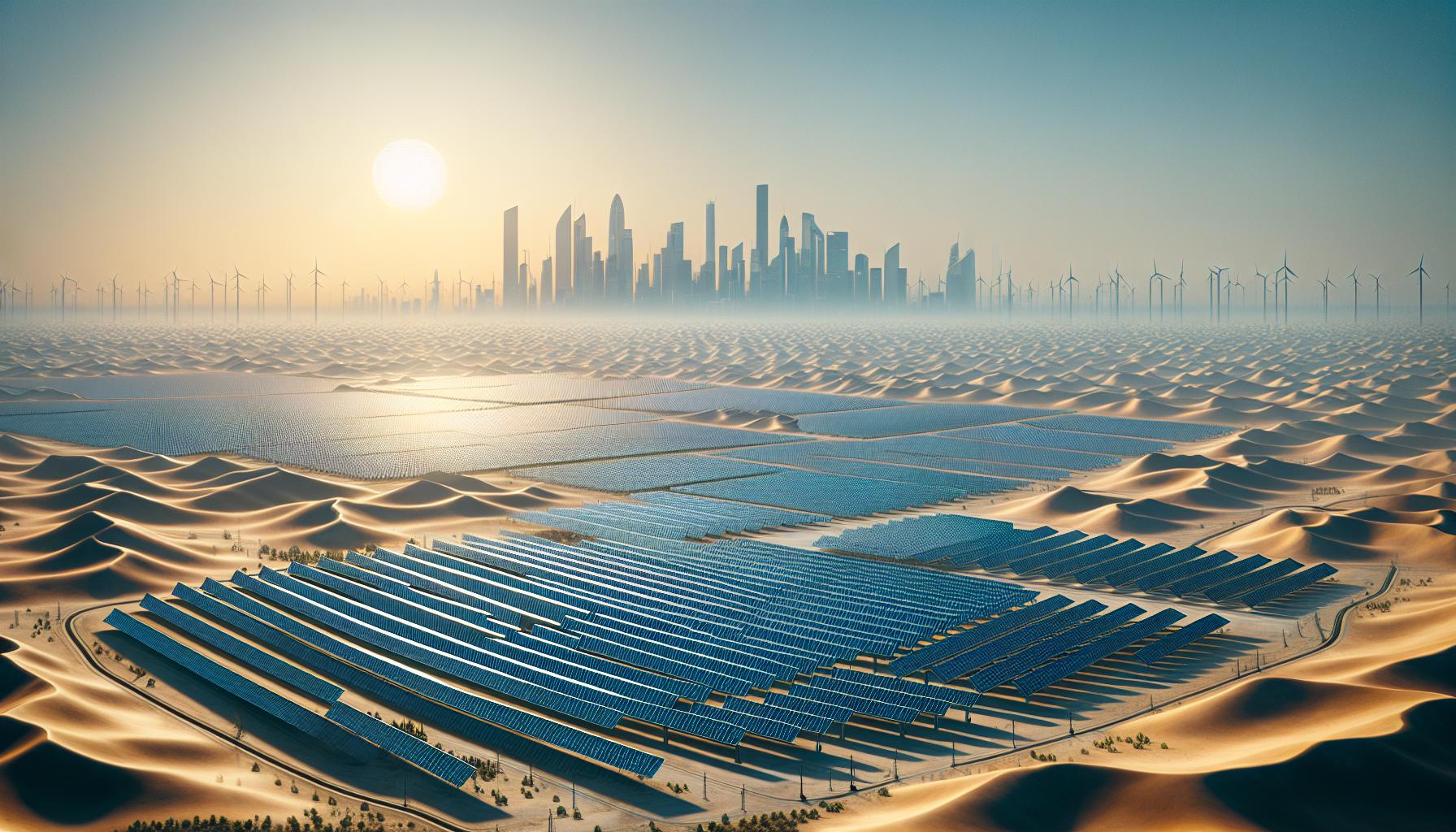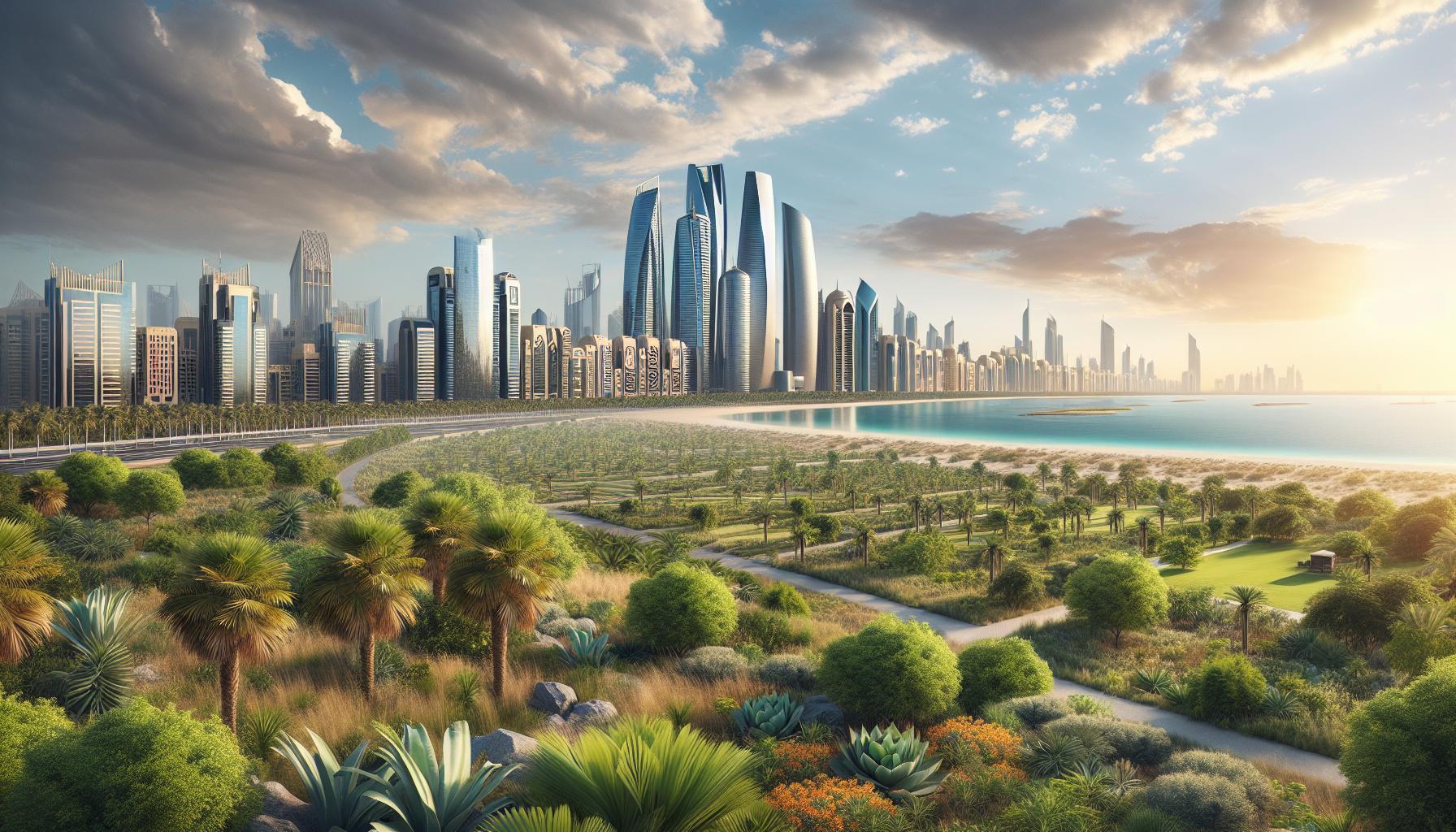
Abu Dhabi isn’t just about stunning skyscrapers and luxurious cars; it’s also making waves in the world of sustainability. Imagine a city where eco-friendly initiatives pop up like date palms in the desert. That’s right, this vibrant capital is on a mission to go green, proving that even in a land of oil, there’s room for renewable energy and sustainable practices.
From solar farms that could power a small nation to innovative waste management strategies, Sustainability Abu Dhabi is turning the tide on environmental challenges. It’s not just a trend; it’s a lifestyle shift that’s as refreshing as a cool breeze on a scorching day. Dive into this article to discover how Abu Dhabi is leading the charge toward a sustainable future, and why it matters more than ever. Who knew saving the planet could be this exciting?
Sustainability Abu Dhabi
Abu Dhabi focuses on sustainability as a core value in its development strategy. The city embraces eco-friendly projects that align with its vision for a greener future. Solar energy initiatives, such as the Noor Abu Dhabi solar plant, generate over 1.1 gigawatts of clean electricity, sufficient to power approximately 90,000 homes.
Waste management systems prioritize recycling and waste reduction. The city implements segregated waste bins across neighborhoods, encouraging residents to participate actively in sustainability efforts. Innovative technologies transform organic waste into renewable energy, advancing Abu Dhabi’s circular economy.
Additionally, urban design integrates sustainable practices. Masdar City exemplifies this approach, featuring energy-efficient buildings and a car-free environment. Such designs contribute to reduced carbon footprints while enhancing residents’ quality of life.
The emirate also invests heavily in research and development. Organizations like the Sustainability Abu Dhabi Group foster collaboration among various stakeholders, including businesses and government entities. These partnerships aim to share knowledge and implement best practices in sustainability.
Environmental education plays a crucial role in promoting sustainable behaviors. Schools and community programs raise awareness about ecological issues, instilling values of conservation in future generations.
Ultimately, Sustainability Abu Dhabi’s commitment reflects its response to global environmental challenges. Diverse initiatives and innovative practices position the city as a leader in the sustainability movement, signaling a long-term dedication to creating an eco-friendly world.
Key Initiatives Promoting Sustainability

Abu Dhabi demonstrates a commitment to sustainability through various initiatives aimed at creating a more eco-friendly environment. These initiatives include significant investments in renewable energy and sustainable urban development practices.
Renewable Energy Projects
Abu Dhabi leads in renewable energy projects, prominently featuring the Noor Abu Dhabi solar plant. This facility generates over 1.1 gigawatts of clean electricity, significantly reducing reliance on fossil fuels. Projects like the Mohammed bin Rashid Al Maktoum Solar Park further enhance the emirate’s energy portfolio, aiming for 5,000 megawatts by 2030. Wind energy also plays a part, with offshore wind farms being explored to diversify energy sources. Innovative technologies in solar and wind contribute to job creation and economic stability, emphasizing a green energy economy.
Sustainable Urban Development
Sustainability Abu Dhabi urban development focuses on creating green, livable cities. Masdar City represents a prime example, designed to be car-free with energy-efficient buildings. The integration of smart technology aims to reduce energy consumption and minimize waste. Regulations require new developments to follow sustainability guidelines, promoting greener practices across the construction sector. Green spaces enhance air quality and provide residents with recreational areas. Community engagement programs encourage sustainable habits among residents, fostering a culture of environmental responsibility.
Environmental Challenges Faced

Abu Dhabi encounters various environmental challenges that threaten its sustainability goals. Addressing climate change and water scarcity is crucial for ensuring a resilient future.
Climate Change Impact
Rising temperatures profoundly impact the region’s ecosystem and infrastructure. Increased heat contributes to higher energy consumption, straining the electricity grid. Coastal erosion threatens habitats and properties, leading to significant economic costs. These changes necessitate a proactive approach in urban planning and renewable energy projects. Collaboration among stakeholders, including public and private sectors, strengthens climate resilience. Implementing green initiatives, like increasing vegetation and green spaces, supports biodiversity and mitigates heat effects.
Water Scarcity Issues
Sustainability Abu Dhabi faces severe water scarcity due to limited freshwater sources. As the population grows, the demand for water increases significantly. Desalination remains a primary solution, yet it poses environmental concerns. Efficient water management is imperative to optimize existing supplies. Initiatives, such as wastewater recycling and encouraging conservation practices, contribute to sustainable water use. Education campaigns raise awareness about the importance of water preservation among residents. Addressing this issue is vital for supporting agriculture and ensuring a sustainable future in the emirate.
Community Engagement and Education

Community engagement and education play vital roles in promoting sustainability in Abu Dhabi. The government and various organizations are committed to raising awareness about environmental issues and sustainable practices.
Awareness Programs
Awareness programs in Abu Dhabi target residents through workshops and seminars. These initiatives help to educate the public about recycling practices and energy conservation techniques. Schools frequently participate in campaigns focusing on eco-friendly habits, fostering a sense of responsibility among students. Events like Earth Day and Sustainability Week further engage the community, creating opportunities for hands-on learning and involvement. Workshops typically cover topics such as renewable energy, waste reduction, and water conservation.
Local Participation in Sustainability Efforts
Local participation significantly enhances sustainability efforts across Abu Dhabi. Residents often join initiatives aimed at conserving energy and reducing waste through community clean-up days and tree-planting events. Nonprofit organizations collaborate with local governments to create programs that empower communities to take action. Engaging local businesses strengthens these efforts, promoting eco-friendly practices within the commercial sector. Incentives, such as tax reductions for sustainable businesses, encourage broader community involvement while expanding the reach of sustainable initiatives.
Future Goals and Directions
Abu Dhabi aims to strengthen its sustainability initiatives with ambitious targets for the coming years. The emirate plans to increase the share of renewable energy in its energy mix to 50% by 2030, underscoring its commitment to eco-friendly solutions. Innovative infrastructure projects like offshore wind farms seek to diversify energy sources further.
Community engagement remains a cornerstone for sustainability efforts. Organizing workshops and educational programs for residents fosters awareness about environmental practices. Events such as Sustainability Week create opportunities for locals to participate in hands-on activities, reinforcing the importance of collective action.
Masdar City continues to set a benchmark for sustainable urban development. Enhancements in public transportation systems intend to reduce reliance on personal vehicles. Smart technologies will integrate energy-efficient solutions to minimize overall consumption.
Water conservation remains a pressing issue for Abu Dhabi. Initiatives aimed at wastewater recycling have been prioritized to address water scarcity. Public campaigns will encourage residents to adopt water-saving habits at home and in their communities.
Collaboration among stakeholders drives many of these future goals. Government agencies, NGOs, and private sectors unite to identify solutions to environmental challenges. Regular forums and discussions promote shared knowledge and best practices for sustainability.
Abu Dhabi’s leadership in renewable energy serves as a model for other cities. By showcasing successful projects like Noor Abu Dhabi and the Mohammed bin Rashid Al Maktoum Solar Park, the emirate demonstrates the viability of large-scale renewable investments. The commitment to a sustainable future positions Abu Dhabi as a pivotal player in the global sustainability movement.
Abu Dhabi’s Journey Toward Sustainability
Abu Dhabi’s journey toward sustainability reflects a deep commitment to environmental stewardship and innovation. With substantial investments in renewable energy and community engagement, the emirate is not just adapting to global challenges but actively shaping a sustainable future.
The integration of smart technologies and eco-friendly practices in urban design sets a precedent for cities worldwide. As Abu Dhabi continues to tackle issues like water scarcity and climate change, its proactive approach serves as an inspiring model.
The collective efforts of government, organizations, and residents highlight the importance of collaboration in achieving sustainability goals. As the emirate forges ahead, it invites others to join in the mission of creating a more sustainable planet for generations to come.


